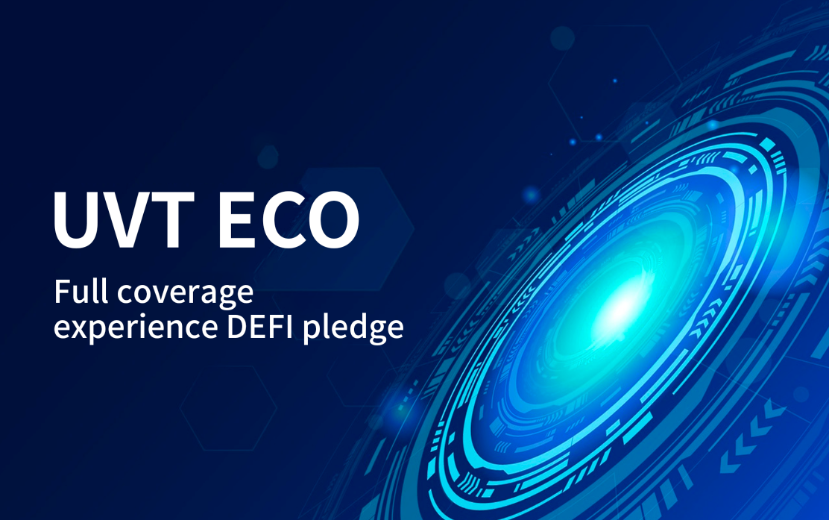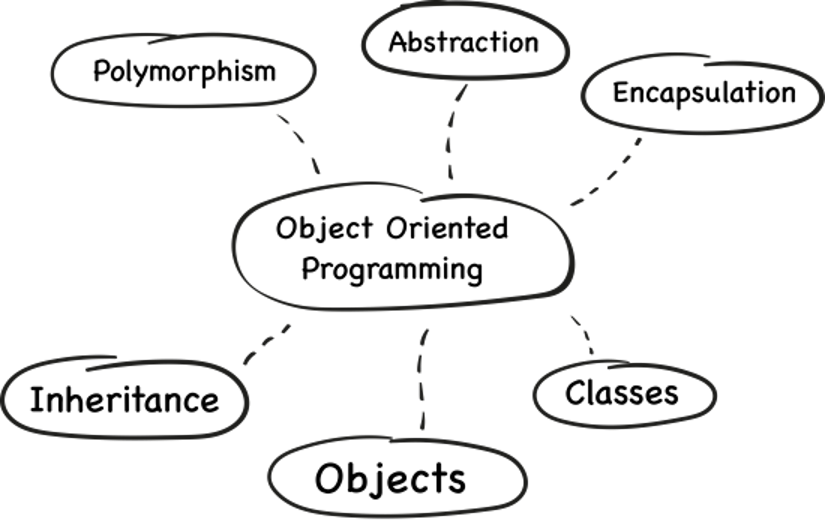UVT ECO is a fast, decentralized, developer-friendly DeFi ecosystem designed to serve as the foundation for a new generation of games, applications and the digital assets that support them. It is based on a unique, multi-role architecture and is designed to scale without the need for sharding, allowing for massively increased speed and throughput while retaining a developer-friendly, ACID-compliant environment.
UVT ECO enables developers to build thriving cryptocurrency and cryptocurrency-backed businesses. applications on UVT ECO enable consumers to control their own data; create new types of digital assets that can be traded on open markets anywhere in the world; and build open economies owned by users that help them realize value.

Smart contracts on UVT ECO can be assembled like Lego blocks to power applications that serve billions of people, from basketball fans to businesses with mission-critical requirements.
There are four pillars that make UVT ECO unique among existing blockchains.
Multi-role architecture. UVT ECO is uniquely designed to allow the network to scale to serve billions of users without fragmentation or reduced consensus decentralization.
Resource-oriented programming: Smart contracts on UVT ECO are written in Cadence, an easier and more secure programming language for crypto assets and applications.
Developer ergonomics: From scalable smart contracts and built-in logging support to the UVT ECO simulator, this network is designed for results.
Consumer Onboarding: UVT ECO is designed for mainstream consumers with a payment channel that catalyzes a secure and low-friction path from fiat to cryptocurrency.
While we initially started building UVT ECO for our own use, it has quickly become much bigger than us. Hundreds of developers in our discussion forums and thousands more around the world agree: we're doing something special here. Let's create the future together!

Multi-node architecture
In a traditional blockchain, each node stores the entire state (account balance, smart contract code, etc.) and performs all the work associated with processing each transaction on the chain. This is like having a worker build an entire car.
From manufacturing to CPU design, pipelining is a common technique that can greatly increase productivity. uvt ECO applies pipelining to blockchain by dividing the work of verifier nodes into four different roles. Collection, Consensus, Execution, and Verification. This division of labor between nodes is vertical (spanning different validation phases for each transaction), rather than horizontal (spanning different transactions, such as sharding).
In other words, each verifier node is still involved in the validation of each transaction, but they only do so during one of the validation phases. As a result, they can focus on - and greatly improve - the efficiency of their particular phase.
This allows UVT ECO to scale to thousands of times higher throughput and lower costs, while maintaining a shared execution environment for all operations on the network. On the database side, smart contracts and user accounts on UVT ECO can always interact with each other in an atomic, consistent, isolated and persistent (ACID) transaction. This ensures a good user experience and full composability, making it easy for developers to build on each other's work.
The problem with fragmentation
Most proposals aim to improve the scalability of blockchains by partitioning them into interconnected networks: usually sharding, although sidechains suffer from the same problem. These approaches eliminate the serializability ("ACID") guarantee that is common in database systems.
Losing the ACID guarantee makes it more difficult and error-prone to build an application that needs to access data across shards. The interaction between smart contracts becomes very complex, and even individual large-scale applications have to employ complex mechanisms to scale across shards due to latency issues and higher transaction failure rates. This combination greatly limits the variety of possible applications on the network, and their network effects. Fragmentation effectively puts the hardest part of scaling a blockchain in the hands of application developers, rather than solving the problem at the protocol level.
In a non-fragmented, ACID-compliant environment like UVT ECO, the same action, and many more complex actions than it, can be handled in a single block with a single atomic transaction.
Worse than the extra time and cost is the increased attack surface and complexity: it will be harder to design, test, and harden smart contract code on a sharded blockchain.
Separating consensus from computation
The core insight that led to the UVT ECO architecture was that we could separate non-deterministic processes from deterministic ones and assign them to different types of nodes based on their technical capabilities to significantly increase the throughput of the blockchain and simultaneously address the experience of several users and developers of the existing network. Our understanding is that tasks within the blockchain can be divided into two types.
Non-deterministic (or "subjective") tasks, such as determining the existence and order of transactions in the blockchain
Deterministic (or "objective") tasks, such as computing the outcome of these ordered transactions once it has been determined.
Non-deterministic tasks require a coordinated consensus process (e.g. proof of work or proof of stake). Deterministic tasks, on the other hand, always have a single, objectively correct outcome.The key insight behind the UVT ECO architecture is that the biggest bottleneck in blockchain performance is the deterministic task of executing transactions after they are incorporated into a block, rather than the subjective process that requires consensus, i.e., the formation of the block itself. This insight is outlined in our first technical paper. Separating Consensus and Computation.
A fluid multi-actor architecture
UVT ECO pipelines the work of blockchain miners or verifiers through four different roles, all of which require pins; this separation of concerns significantly reduces redundant work.
Consensus nodes determine the existence and order of transactions on the blockchain
The validation node is responsible for performing checks on the execution node
Execution nodes perform the computations associated with each transaction
Collection nodes enhance network connectivity and data availability for Dapps
The process is designed in such a way that even an honest node, with any role, can penalize and trigger the recovery of invalid data introduced by a dishonest collection or execution node.
Together, consensus and verifying nodes form the secure foundation of the UVT ECO network and use cryptographic economic incentives to hold the rest of the network accountable. These verifiers optimize security and decentralization: the roles of consensus and verification are streamlined to allow for high levels of participation, even for individuals running on a home Internet connection using consumer-grade hardware. A variant of the consensus node runs, which is one of the most mature proof-of-stake algorithms.
On the other hand, the work done by the execution nodes and collection nodes is completely deterministic - making them less vulnerable to attack. The work of these nodes is also verified and accountable by other node types. As a result, these node roles can safely optimize security and scalability, allowing the network to scale. Operating these nodes requires dedicated server hardware in a professionally managed data center.

Specialized Proofs of Confidentiality Knowledge (SPoCKs)
Specialized Proofs of Confidential Knowledge (SPoCKs) are a new cryptographic technique developed by the UVT ECO team and formally defined in our technical paper.SPoCKs allow any number of provers to prove to a third party observer that each of them has access to the same confidential knowledge. These proofs are non-interactive and do not reveal confidential knowledge. Each prover's SPoCK is specialized to them and cannot be copied or falsified by any other prover.
Developer-first experience
While existing programming environments can be used to track asset ownership, they are typically used in scenarios where ownership is reflected rather than directly defined. Public blockchains are unique in that they are explicitly designed to manage ownership of digital assets with scarcity and full access control. Digital assets on public blockchains behave similarly to physical assets: they cannot be copied or counterfeited and can only be moved.
Last year, the UVT ECO team is investigating the use of linear types in the blockchain context, following academic research on better smart contract languages.
Resource-oriented programming is a new paradigm that is designed to be secure and easy to use. For the first time, developers can create uniquely durable digital artifacts whose ownership is tracked by the language itself, enabling a powerful new class of applications.


All Comments